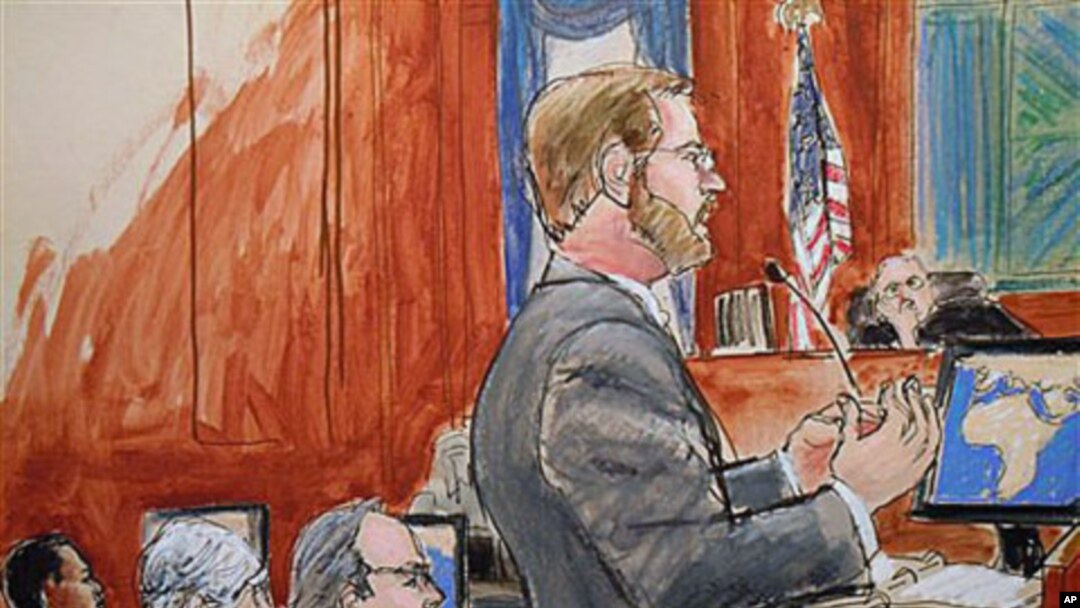The defense attorney in the trial of Tanzanian Ahmed Ghailani, who is accused of conspiring to bomb the United States embassies in Tanzania and Kenya in 1998, told the jury Tuesday that Ghailani was a "dupe" of al-Qaida operatives and should not be found guilty.
The Ghailani trial is now in its final phases, following closing arguments by the prosecution and the defense.
Ghailani is the first detainee from the U.S. military detention center at Guantanamo Bay, Cuba to face charges in a U.S. civilian court. His defense lawyer, Peter Quijano, told the jury that the government's case is insufficient to prove beyond the required reasonable doubt that Ghailani knew about the bomb plot.
Referring to Ghailani as an innocent, naïve boy in 1998, when he was 24-years-old, Quijano repeated many times during his closing argument that Ghailani did not know about the plot and that he was a dupe like others involved in the 1998 bombings that killed 224 people in Dar es Salaam and Nairobi, including 12 Americans.
The defense lawyer argued that prosecution witnesses from Tanzania lacked credibility. He said there is no evidence that Ghailani was on an airplane that prosecutors say he used to escape to Pakistan immediately before the blasts. Quijano said American investigators in Dar es Salaam mishandled evidence they discovered in Ghailani's apartment. And he said that Ghailani's involvement in the purchase of a truck and gas cylinders linked to the Dar es Salaam explosion were common transactions.
In its summation on Monday, the prosecution rejected the argument that Ghailani was a dupe, pointing to evidence presented during the trial that Ghailani had been present in Dar es Salaam and Mombasa with other members of the bomb plot and that his cell phone was the operational phone for the East Africa cell of al-Qaida.
Ghailani's defense attorney focused on whether the government had proven that Ghailani knowingly and willingly joined the terrorist conspiracy. He asked the jurors to find Ghailani not guilty on all the charges, including murder and conspiracy.
Defense Presents Closing Arguments in Ghailani Terror Trial

Assistant U.S. Attorney Nicholas Lewin, foreground, gives his opening statement to the jury in the trial of Ahmed Khalfan Ghailani, left, in Manhattan Federal Court in New York, 12 Oct 2010


